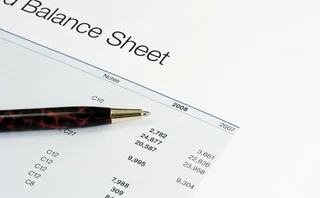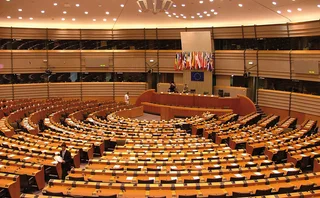
EC launches new vision for energy policy
The European Commission has today proposed a new energy policy for Europe that focuses on fighting climate change and making Europe’s internal energy market more competitive.
"Today marks a step change for the European Union,” says Commission President José Manuel Barroso. “Energy policy was a core area at the start of the European project. We must now return it to centre stage."
To make the internal power market more competitive, the EC is pushing for greater separation of energy production from energy distribution. This can either be achieved by forcing vertically integrated power companies to sell off their transmission assets, or by allowing companies to retain ownership but surrender operational control to independent bodies. The EC has expressed a “clear preference” for full ownership unbundling, although this will be more difficult to achieve.
“Open and fair access to the transmission grids is vital to competitive markets, but full ownership unbundling is not the only way to achieve the Commission's stated aims,” says Jayesh Parmar, Partner and Head of Energy Advisory Services at Ernst & Young.
The EC also proposes to introduce stronger independent regulatory control of power and gas markets, either in the form of a single EU regulator or a European network of independent regulators that would work closely with Brussels in identifying key bottlenecks and appointing coordinators, in an effort to deliver the EU target of 10% minimum interconnection levels.
Regarding climate change, the EC has proposed that any post-2012 Kyoto Protocol framework should lead to a 30% cut in emissions from developed countries by 2020, and has urged the EU to cut greenhouse gas emissions by at least 20% over the same period. It has also proposed that 20% of the overall EU energy mix should be sourced from renewable energy by 2020. A minimum target of 10% for biofuels will supplement this renewables target. In addition, a 2007 renewables legislative package will include specific measures to facilitate the market penetration of both biofuels and heating and cooling.
The EC has also called for more use of fuel-efficient vehicles, tougher standards and better labelling on appliances; improved energy performance of the EU's existing buildings and improved efficiency of heat and electricity generation, transmission and distribution in an effort to achieve its previously-stated objective of saving 20% of total primary energy consumption by 2020.
The EC has sidestepped the nuclear issue, saying that “it is for each member state to decide whether or not to rely on nuclear electricity.” Nuclear power accounts for 30% of EU electricity at present.
Finally, the EC suggests that the EU develop effective solidarity mechanisms to deal with any energy supply crisis and actively develop a common external energy policy to increasingly "speak with one voice" with non-EU countries.
Only users who have a paid subscription or are part of a corporate subscription are able to print or copy content.
To access these options, along with all other subscription benefits, please contact info@risk.net or view our subscription options here: http://subscriptions.risk.net/subscribe
You are currently unable to print this content. Please contact info@risk.net to find out more.
You are currently unable to copy this content. Please contact info@risk.net to find out more.
Copyright Infopro Digital Limited. All rights reserved.
As outlined in our terms and conditions, https://www.infopro-digital.com/terms-and-conditions/subscriptions/ (point 2.4), printing is limited to a single copy.
If you would like to purchase additional rights please email info@risk.net
Copyright Infopro Digital Limited. All rights reserved.
You may share this content using our article tools. As outlined in our terms and conditions, https://www.infopro-digital.com/terms-and-conditions/subscriptions/ (clause 2.4), an Authorised User may only make one copy of the materials for their own personal use. You must also comply with the restrictions in clause 2.5.
If you would like to purchase additional rights please email info@risk.net
More on Solvency II
Lack of transposition to delay Mifid II enforcement
Some states won’t have adopted directive before June, making rule-imposition difficult, say lawyers
Capital and funding
Quants propose KVA and FVA accounting framework based on Solvency II regulation
Testing interest rate models for Solvency II applications
Alexey Botvinnik and Vladimir Ostrovski propose a validation method for interest rate models
Eiopa cuts matching adjustment risk margin
UK insurers welcome additional capital relief
Solvency II volatility dampener ineffective for euro periphery
Stress tests expose flaw in formula to calculate volatility adjustment
Solvency II technical draft too harsh, firms claim
Industry representatives call on Eiopa to soften draft specifications
Commission 'must ensure proportionality of Solvency II' rules as MEPs give green light to new regime
Omnibus II approved by European Parliament
EC to restrict deferred tax assets in Solvency II
Rules expected to be tightened on determination of future profits







